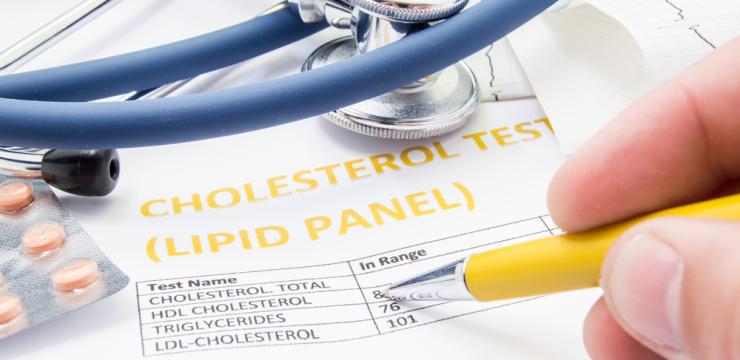
- Excerpt
Do cholesterol lowering statins really decrease overall coronary heart disease mortality ? Is the promise made by the pharmaceutical industry true ? Cardiovascular health is what the manufacturers of cholesterol-lowering drugs have been claiming since the 1990s. “Take statins, take statins, take statins !!!” That’s their constant message. “Take statins when you’re still healthy and you’ll live forever.” But, is there really a statistically relevant relationship between the use of statins and a decrease of coronary heart disease mortality. In a word, NO. There isn’t.
Table of contents
Pushing statins does not produce lower cardiovascular mortality
In 2015 researchers published a study in the British Medical Journal. Their objective was “to determine whether there is a relation between statin utilisation and coronary heart disease (CHD) mortality in populations with different levels of coronary risk, and whether the relation changes over time.” [i] They included data from 12 Western European countries [ii] and found “a wide range of CHD mortality reduction between the years 2000 and 2012 (from 25.9% in Italy to 57.9% in Denmark) and statin utilisation increase (from 121% in Belgium to 1263% in Denmark).” However, they failed to establish a statistically significant relationship between cardiovascular mortality rates and what they described as “the large increase in statin utilisation.” In the countries studied, that increase “was not associated with CHD mortality, nor with its rate of change over the years.”
Over- and under-treatment
In the countries included in the study, there was no apparent relation between the increase in statin prescriptions and the reduction in CHD mortality. But, you may wonder, if there’s no relationship between statins and cardiovascular mortality, why constantly increase the use of statins ? The authors suggest that “factors different from the individual coronary risk, such as population ageing, health authority programmes, guidelines, media attention and pharmaceutical industry marketing, may have influenced the large increase in statin utilisation.” More in particular, they attribute the thriving statins-business to the fact that “statins are overused in individuals with low cardiovascular risk, whereas they are underused in those at high risk. This may result in under-treatment of high-risk patients whereas low-risk individuals may be unnecessarily treated, potentially leading to adverse effects and increased expenditure.”
Do statins lower the absolute risk of CHD mortality ?
Medical officialdom adamantly and blindly insists that the lowering of your cholesterol level will absolutely produce cardiovascular benefits. As a result, most people have come to believe that the overall reduction of CHD mortality should be considered as an effect of the increased prescription of statins. The point is, however, that the positive results presented in statin-studies are seldomly expressed in terms of reducing the absolute risk of heart disease. In their 2015 study, the authors relate that clinical trials “show that statins lower the absolute risk of coronary death by less than 1–3.5%, which represents a small proportion of the observed reduction.” They also mention that “the decrease in CHD mortality rates in Western countries started well before statin therapy became available, due to improvement of risk factors, as a result of population-based interventions.” Due to the fact that statins only marginally contribute to the reduction of CHD mortality, “it is difficult to demonstrate any population impact of statin utilisation on CHD mortality. This was confirmed in a Swedish study including a large sample of municipalities, where no correlation was shown between statin utilisation and acute myocardial infarction incidence or mortality.”
Life-style changes instead of statins !
Indeed, in the countries included in the study CHD mortality has decreased by approximately 40%, while statin utilisation increased more than threefold between 2000 and 2012. The study shows that the improvement of cardiovascular health cannot be attributed to statins and its authors rightfully conclude: “…, whether they [statins] are appropriately prescribed to those who benefit most, that is, high-risk individuals and whether statins are effective and safe in otherwise healthy people, are matters for debate.” They emphasize that “since CHD is largely dependent on health factors, such as diet and exercise, the apparent lack of association we observed between CHD mortality and statin utilisation supports the need for greater implementation of population life-style changes instead of additional initiatives to further enhance statin utilisation to reduce the burden of CHD.”
Cardiovascular Health Index
In 2011, researchers at Maastricht University in Holland proposed that to improve cardiovascular health, one should consider supplementing one’s diet with bioactive compounds that have multiple beneficial effects. [iii] Compounds having multiple phsyiological effects are called ‘pleiotropic’. To test their idea, they established these multiple effects and designed a CardioVascular Index, in which they placed results obtained with Masquelier’s OPCs in a 60-days clinical trial. According to the researchers, “The results of the present pilot study unveiled the potency of [Masquelier’s OPCs] from Vitis vinifera L. to improve vascular health when regularly applied for 8 weeks in relatively small amounts of 200 milligrams per day in addition to the normal diet.” The adding up of the frequently observed positive trends on various cardiovascular processes showed that Masquelier’s OPCs have a distinctive overall vascular health benefit as indicated by a significantly higher vascular health index compared to the inert placebo.
In fact, the vast body of nutritional research shows that practically all bioactive compounds (vitamins, minerals, enzymes, amino acids, botanicals, fatty acids, etc.) have ‘pleitropic’ effects. These effects may not be as strong as the effect of a ‘one-target-one-hit’ drug, but taken together, they make a significant contribution to our health. Simply put: they make our health. All you have to do is make sure that your daily diet contains and delivers them in amounts sufficient to live a long and healthy life.






